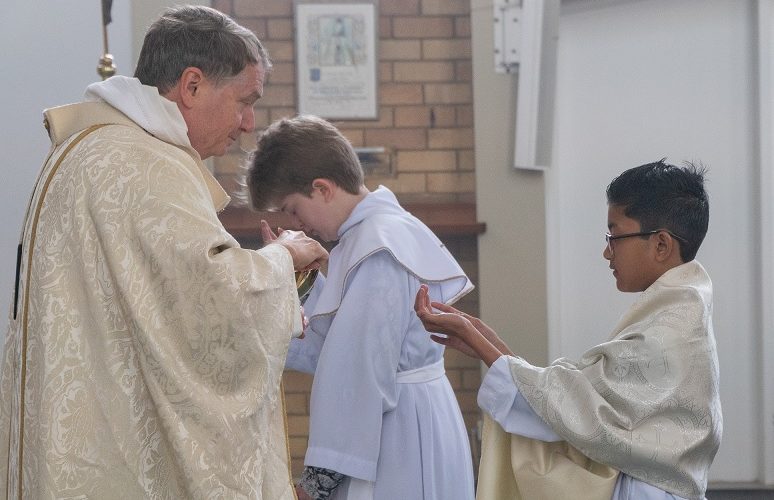Sin is not of Niceties
You may still remember a much discussed comment by Pope Francis, “It is not necessary to believe in God to be a good person.” It was a paraphrased version of a homily by the Pope in May 2013 which made headlines in the following year. If there are good people among non-believers, does that mean the sacraments and concept of sin are irrelevant? To me it seems that some of the parents, students, and even some of the teachers of the Catholic Schools consider philanthropy is the only purpose of religion. To them a speeding ticket is sin, but blasphemy does not count. Such an erroneous attitude is creating lapsed Christians to whom fellowship gatherings and sacraments are irrelevant.
What is sin? Every Christian knows that stealing, killing, violence, abuse of any kind, and sex outside marriage constitute sin. In addition to them, there seems to be a belief that the lack politeness is the worst of sins. The importance people place on politeness and etiquette is so great that in many minds they equate to holiness. For such people it is more important to be politically correct than to go to Church.
Another development is the increase in the so called “good Christians” thinking that co-habitation before marriage is religiously okay because civil society approves ‘de facto’ relationships. They do not see this as an aberration of the sacramental life of a religious Christian.
‘Loving God and our neighbour as ourselves‘ is the defining factor of a Disciple of Christ. Anything that goes contrary to this basic precept of Jesus is sinful. Loving thy neighbour means to reach out to all people in need. Thanks to the humanitarian society we live in, this part of the commandment is understood easily. But when it comes to loving God, the same cannot be said.
If we love God, we will be in constant touch with God. It is like a ‘mum and babe’ dynamic. When we pray we are in communication with God. When we use the Word of God for reflection and prayer we are communicating with God. But as the Disciples of Christ we have a special and privileged way of communicating with Christ. We come into a union with the Body of Christ through the reception of blessed bread and blessed wine at the Eucharist. By becoming one with Christ’s Body, you yourselves become the Body of Christ. Being part of the Body of Christ, you are Holy People as well. The Apostle Paul in his letter to Colossians calls Christians “God’s Holy People” (Ref Colossians 1:1-2). Also praying the First Eucharistic prayer, the priest says, “we your servants and your holy people” (Ref. The order of Mass #92). Becoming part of the Body of Christ through the Holy Communion is not an optional extra for Catholic Christians, because at the Last Supper Christ commanded, “Do this in memory of me” (Ref Luke 22:19). Therefore, any failure in making Holy Communion with the Body of Christ through the Eucharist is a failure in your love for God. Remember that failing to love God is a sin (Ref 1 John 2:1-5).
In our Eucharistic celebration, we are preaching therefore repentance for the forgiveness of sins, just as the disciples on the road to Emmaus were told, according to the Gospel (Luke 24:48). Sin is not neglecting niceties. Sin is failure to love God and our Neighbour. By the virtue of Christ’s resurrection, we can seek forgiveness for our sins through the Body of Christ, the Church.

